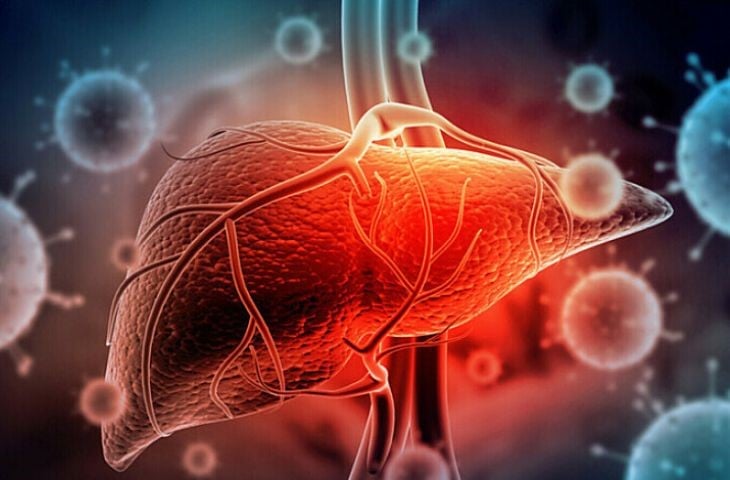Liver cancer is one of the most common and deadly cancers in Vietnam. The country is witnessing an increasing incidence of liver cancer, with a worrying trend of younger patients. However, due to a lack of awareness and non-specific symptoms, many cases are only detected at advanced stages. Early detection of warning signs is crucial for successful treatment and prolonging survival.

Pay attention to these 9 crucial warning signs of liver cancer:
Pain in the right lower quadrant
Pain in the right lower abdominal region is often one of the earliest and most common signs of liver cancer. Individuals may experience discomfort, heaviness, or pain in this area, which corresponds to the location of the liver. The intensity of pain can vary from mild and intermittent to severe and persistent, indicating the progression of the tumor.
Unexplained weight loss
Sudden and unexpected weight loss is a classic red flag for many cancers, including liver cancer. It is important to note that unintentional weight loss, not attributed to changes in diet or exercise, could indicate a serious underlying issue. Cancer disrupts normal nutrient absorption and utilization, causing weight loss.
Loss of appetite, nausea, and vomiting
Individuals with liver cancer often experience a decrease in appetite and may feel full quickly. They might also suffer from persistent nausea and vomiting after meals. These symptoms occur due to the damage inflicted on the liver, impairing its role in digestion and metabolism.

Prolonged fatigue
As with any other disease, liver cancer patients often experience extreme fatigue. Feeling constantly exhausted, even with adequate rest, could indicate liver dysfunction. When the liver is not functioning optimally, its ability to detoxify and cleanse the body diminishes, leading to persistent fatigue.
Jaundice (yellowing of skin and eyes)
Jaundice, characterized by yellow discoloration of the skin and eyes, is a telltale sign of liver damage. The liver’s inability to process and excrete bilirubin, a bile pigment, results in its buildup in the blood, causing jaundice. Dark urine and pale stool are also associated signs.
Abdominal distension and ascites
Liver cancer often leads to an abnormal enlargement of the abdomen due to the excessive growth of the tumor and subsequent enlargement of the liver, known as hepatomegaly.
Bruising and bleeding
The liver is responsible for producing blood-clotting factors. Liver cancer impairs this function, leading to easy bruising, nosebleeds, gum bleeding, or unexplained bleeding.
Itchy skin
Some liver cancer patients experience generalized itching. This is caused by the improper secretion of bile acids, which accumulate under the skin, resulting in an uncomfortable itching sensation.
“The Ginger Foot Rub: An Ancient Remedy for a Good Night’s Sleep and Optimum Health”
Ginger is a natural herb that has been used in foot rubs for its medicinal properties. A simple ritual of slicing ginger into thin pieces and gently rubbing them on the soles of your feet before bedtime can unlock a world of health benefits. Experience the magical effects of this ancient remedy and witness a noticeable improvement in your overall well-being.
Who Should Avoid Eating Bitter Melon (Bitter Gourd)?
Bitter melon, also known as bitter gourd, is a vegetable with potent health benefits. While it may not appeal to everyone’s palate due to its distinct bitter taste, it is a nutritional powerhouse packed with vitamins and minerals. This humble vegetable has gained recognition in the health and wellness sphere for its potential to promote overall wellbeing.





































